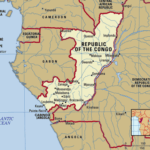Supplying Waste Incinerators for Livestock and Hatchery Operations in the Republic of Congo
As part of ongoing efforts to modernize agricultural and veterinary waste management, the Ministry of Agriculture, Livestock and Fisheries of the Republic of Congo has expressed interest in acquiring a biological waste incinerator suitable for handling complex waste streams generated from livestock and hatchery operations.
This includes non-hatched chicks, infertile eggs, placentas, animal carcasses, and pathological waste—all classified as high-risk biological waste requiring safe, controlled destruction.
Proposal from HICLOVER
| Requirement | Proposed by HICLOVER |
|---|---|
| Model | TS100 or equivalent – Yes, we recommend Model TS100 |
| Capacity | ~100 kg per cycle – Yes, designed for 100–150 kg per feeding, particularly for animal waste |
| Preferred fuel | Mixed (Diesel + Electric power supply) – Yes, our incinerators support diesel burners with electric controls |
| Destination | Port of Pointe-Noire, Republic of Congo – Yes, shipping and logistics can be arranged directly |
The TS100 is a robust, dual-chamber incinerator engineered for biological waste, featuring:
-
High combustion temperature (>850°C in secondary chamber) to ensure pathogen destruction.
-
Diesel-fueled primary combustion supported by an electric PLC control system.
-
Average throughput designed for ~100 kg per batch, scalable based on feeding frequency.
-
Heavy-duty refractory lining to withstand daily agricultural and hatchery operations.
Waste Incineration Needs in the Republic of Congo
The Republic of Congo, like many Central African countries, faces increasing demand for environmentally compliant biological waste disposal, especially in:
-
Large-scale poultry hatcheries dealing with non-hatched chicks and infertile eggs.
-
Veterinary laboratories and livestock operations generating pathological waste, animal carcasses, and placental remains.
-
Slaughterhouses and meat processing units.
Historically, many farms and facilities relied on open burning or simple single-chamber brick incinerators. These older methods:
-
Fail to reach the high temperatures required for complete pathogen destruction.
-
Produce visible smoke, odor, and significant particulate emissions.
-
Do not comply with modern environmental and veterinary health standards.
Import and Market Trends
The Republic of Congo largely imports incinerators due to limited local manufacturing capacity for specialized equipment. Over the past five years, government ministries, NGOs, and private agribusinesses have procured:
-
Small and medium-sized dual-chamber diesel-fired incinerators.
-
Mobile or containerized units for field use in remote agricultural zones.
-
Incinerators with electronic controls and better emissions management.
Growing urbanization, stricter veterinary regulations, and international support (from FAO, OIE, and development banks) have accelerated this trend.
Why Choose HICLOVER TS100 for Agricultural Biological Waste?
Technical advantages:
-
Specifically engineered for dense organic waste like poultry and livestock remains.
-
Dual combustion chambers to reduce smoke and odor.
-
Flexible installation: can be fixed, skid-mounted, or containerized.
-
Electric-powered control panel with temperature monitoring and auto-start.
Operational benefits:
-
Average capacity per batch suits medium-scale hatcheries and livestock operations.
-
Fast burning cycle keeps pace with daily waste generation.
-
Heavy refractory lining ensures durability, even with high-moisture animal waste.
Environmental compliance:
-
Meets WHO and FAO recommendations for biological waste disposal.
-
High-temperature combustion significantly reduces pathogen load and odor.
-
Ash volume reduced to less than 5–10% of original waste volume.
Shipping and Support
HICLOVER can arrange direct delivery to Port of Pointe-Noire, Republic of Congo, the country’s principal seaport.
We also offer:
-
On-site installation guidance.
-
Operator training.
-
Spare parts and after-sales technical support.
By selecting the TS100 biological waste incinerator, the Ministry of Agriculture, Livestock and Fisheries of the Republic of Congo—and other agricultural stakeholders—can:
-
Improve farm and hatchery biosecurity.
-
Meet modern veterinary health standards.
-
Reduce environmental impact compared to open burning.
For detailed technical specifications, price quotations, or references from similar African projects, please visit:
www.hiclover.com
sales@hiclover.com
HICLOVER – providing reliable, high-temperature waste treatment solutions for agriculture, veterinary, and medical sectors across Africa.

